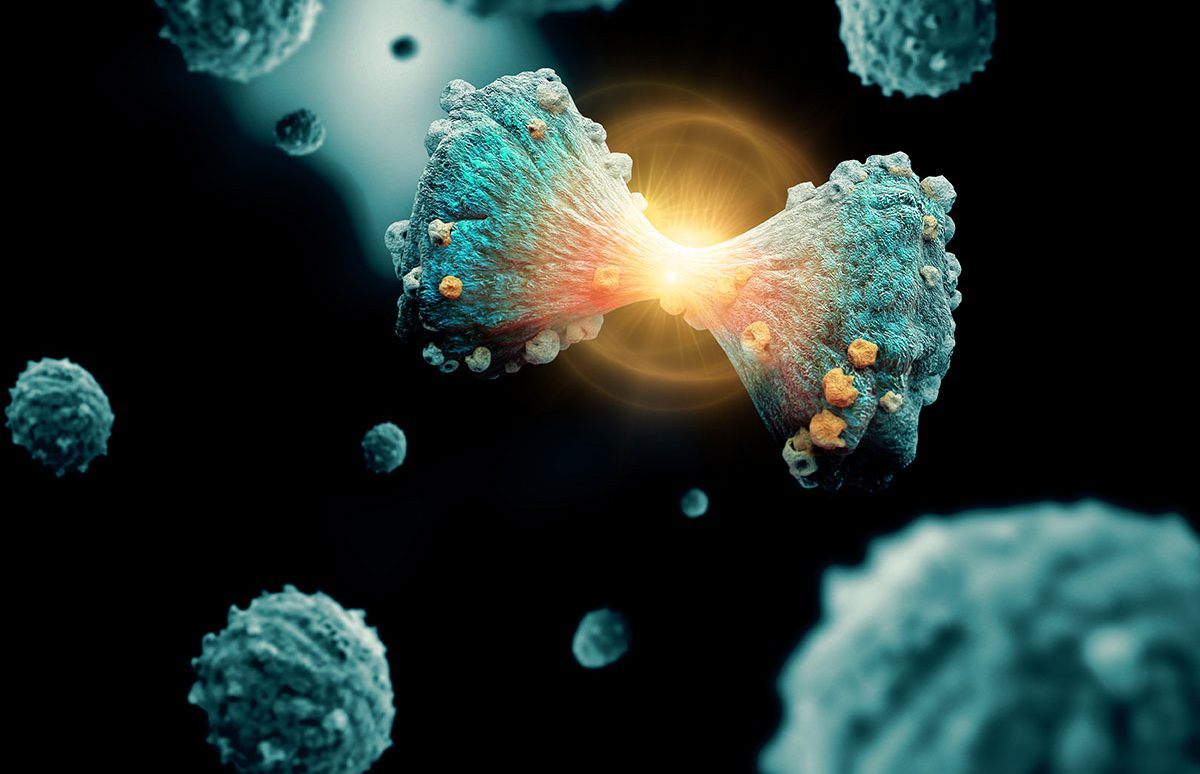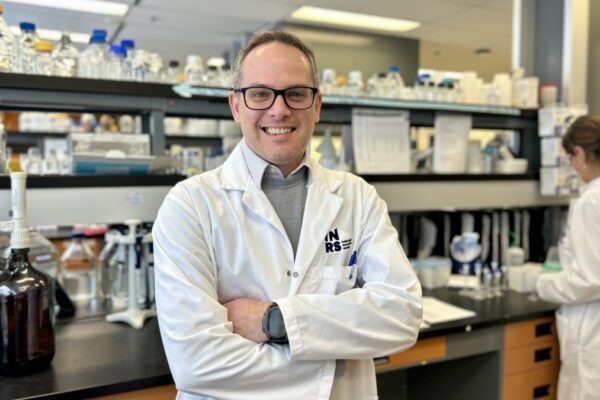- Research
-
YOU ARE
- Community member
- Future Student
- Student
- Professor
- Alumni
- Media
- Guidance counsellors
- INRS retiree
- Contact Us
- Newsroom
- Careers
- FR
-
Studies
We teach the next generation of researchers to develop scientific, social, and technological innovations.
-
Research
We find solutions through interdisciplinary research and industry or public and community partnerships.
-
INRS
We play an active role in Québec's economic, social, and cultural development.
How do cancer and cancer treatments affect the reproductive function of men? Can this affect the health of their direct descendants and subsequent generations? To get a clear picture, INRS researchers evaluate the current state of knowledge on this public health issue in a review article appearing in the journal Gynécologie Obstétrique & Fertilité.

They analyze the results of scientific studies to find evidence and better understand the mechanisms of action of chemotherapy on spermatogenesis. The initial observation is that cancer survivors have greater difficulty becoming fathers and use more assisted reproductive techniques, regardless of their age at diagnosis.
Despite a lower birth rate, it seems that having had cancer has no significant affects on the health of their children. However, there is no epidemiological study on the transgenerational effects of cancer treatments. There is also no data available on the reproductive function of the descendants of cancer survivors; hence the importance of continuing cohort studies over multiple generations.
“It’s important to understand the mechanisms of action of chemotherapy on spermatogenesis to help clinicians make informed decisions on adjusting treatment, reducing side effects, and better advising patients on family planning.”
Géraldine Delbès, reproductive toxicology specialist and the author in charge of this study.
Highlights
- Radiation and exposure to alkylating agents have more harmful effects on male fertility and offspring.
- Even without these agents, a combination of drugs can also induce the death of cells in the early cellular stage of spermatogenesis (spermatogonia) with a higher toxicity than either component alone.
- Spermatogenesis can recover in some patients depending on the type of cancer and the dose and duration of treatment received, but such recovery is still clinically unpredictable.
- Freezing sperm before treatment is recommended when possible.
- Cancer and chemotherapy may affect the DNA of sperm, even after a remission period.
- Men with a history of cancer can experience fertility issues and increased embryo loss.
- There is no increase in transmission of genetic mutation to offspring following cancer treatments.
- There is no significant increase in the frequency of post-natal mortality, birth defects and hospitalization rate among the children of male cancer survivors compared to the general population.
- There has been a decrease in side effects due to the development of better treatments, limiting the use of radiation.
- Experimental data suggest that subtle effects can be observed on several generations supporting the need for continued multigenerational monitoring in humans.
About the study
Published in Gynécologie Obstétrique & Fertilité, this research received a grant from the Cole Foundation and master’s scholarships from the Canadian Institutes of Health Research and Fonds de recherche du Québec – Santé. The results are presented in the article “Transgenerational impact of chemotherapy: Would the father exposure impact the health of future progeny?” produced by researchers A. Tremblay, H. Beaud, and Dr. Géraldine Delbès of INRS. DOI: 10.1016.jgofs.2017.09.004

The Scourge of Cancer
You may also like

November 29, 2017
Márta RadóShare


